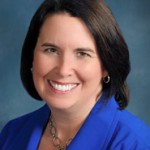For two years, Florida private schools have faced a dilemma affecting students who want a jump start on college. A change in the way the state funds dual enrollment has meant that for some of them, it’s no longer free.

This year, though, a fix may be in the works. The proposed legislation could also make college courses more accessible to home-school students.
In 2013, the Legislature shifted some of the costs of dual enrollment courses from colleges to school districts. The change wound up affecting many private schools, which started receiving charges of $72 per credit hour for students who enrolled in college courses. That meant private schools either had to come up with money to cover their costs, or take dual enrollment options away from their students.
Legislation by Sen. Kelli Stargel, R-Lakeland, approved last week by a Senate panel, would change the way private school students participate in dual enrollment.
The bill would create a new system, similar to the one that exists for home education students. Private-school students could enter articulation agreements with colleges, allowing them to take dual enrollment courses free of charge.
“I think it would be prudent to allow these kids the opportunity to attend our dual enrollment opportunities at our community colleges, and not charge them, the way that we don’t charge other students,” Stargel told the Senate Education Committee.
The bill, SB 874, would also require colleges to offer textbooks to home- and private- school students. Under the current law, they often have to supply their own. Similar legislation has been filed in the House.
It’s hard to gauge the potential impact of the change. Legislative staff have noted the state doesn’t centrally track agreements between state colleges and private schools, and that more than 50,000 students participate in dual enrollment each year.
Howard Burke, the executive director of the Florida Association of Christian Colleges and Schools, is among the supporters of Stargel’s bill.
He said that while many of the state’s 28 colleges started charging private schools after the 2013 change took effect, some, including Broward College in South Florida and Valencia College in Orlando, have not. This year, there are more than 2,000 dual enrollment students at Valencia, including 135 from private schools and 137 who are home-education students.
Before the change two years ago, private school students had taken dual enrollment courses for free since the mid-1980s. Burke and other private school leaders say their high-achieving students should have have the same access to college courses as their public-school peers.
“The fact is, (state colleges are) public institutions and they’re paid for out of the public treasury,” he said. “Every taxpayer ought to have the right of any other.”
Supporters of the legislation say there’s an incentive for colleges to give private school students access to their programs. If students take dual enrollment courses on their campuses, they might stick around after graduating high school to finish their associate’s or bachelor’s degrees.
“The hope is that colleges and universities will see the merit in having nonpublic students take courses and get familiar with their campuses or instructors,” James Herzog, who works on education policy for the Florida Conference of Catholic Bishops, said in an email. “There is also the satisfaction of promoting parental empowerment in education with the taxpayer dollars received.”


